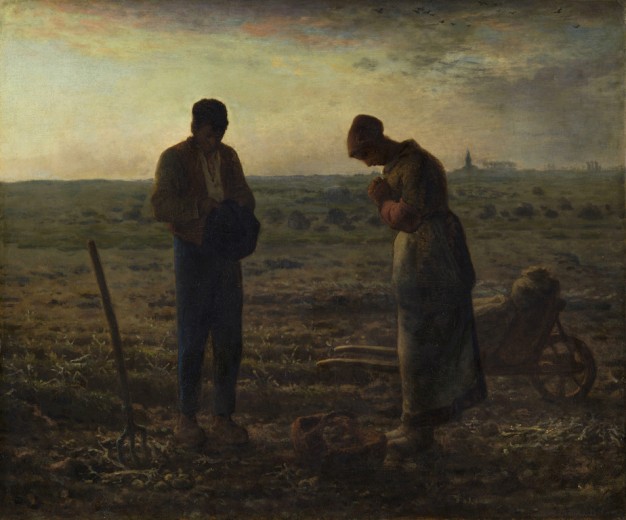

Our Daily Bread
Liturgically, the sixth Sunday of Easter, or the Sunday before Ascension Day, is “Rogation Sunday.” The English word “rogation” comes from the Latin word “rogare,” which means “to ask.”
As church history developed, certain days were set aside each year for “rogation,” asking God for protection from any evil or destruction, specifically the destruction of crops. Incorporating prayer and worship into agricultural cycles has been a common practice of nearly every religious tradition. In fact, the three principal biblical feasts of Judaism – Passover, The Feast of Weeks (which we call Pentecost), and the Feast of Booths (or Tabernacles) – are all connected to harvests. Passover, which remembers the liberation of the Israelites from slavery in Egypt, is observed at the time of the spring barley harvest. The Feast of Weeks developed into a commemoration of the giving of the Law on Mt Sinai, but began as a celebration of both the wheat harvest and the ripening of the first fruits. Finally, The Feast of Booths remembers the desert wanderings of the Israelites, and is observed at the time of the fall harvest.
This impulse to celebrate the harvest with prayer and worship can be seen in the American holiday of Thanksgiving, which American Anglicans have chosen to designate a Feast Day.
As we observe Rogation Sunday, then, I’d encourage each of us to ask God for His provision and protection in our lives and in the life of our community. Since we don’t live in an agrarian society, most of us rarely consider how our food gets to the grocery store or restaurant, so this could be a good opportunity to remember seeds, dirt, rain, farmers, truck drivers, shelf-stockers, and cooks – praying for both the physical creation and for the labor of those involved in the production and preparation of our food.
As we pray, it seems to me that we’ll begin to think about how we care for the land, how we treat farmers, truck drivers, shelf-stockers, and cooks, and, finally, an acknowledgement that, when we pray, “Give us this day our daily bread,” we are praying in full awareness of our ultimate dependency on God while we acknowledge that our prayer is answered in and through the miracle of agriculture and the hard work of so many people. We also become aware of the problem of hunger around the world, and even in our own communities.
It’s fitting that Rogation Sunday comes in Easter Season. In the season of Easter we celebrate that God chose to bring Jesus’ dead body back to life – a renewed body that ate real food. In the resurrection of Jesus’ body, God demonstrates that, rather than dispensing with his physical creation, he actually intends to renew it, removing the fatal effects of sin and death.
In God’s renewed creation we eat. As we act, then, in anticipation of the new creation begun on that first Easter morning, let us commit to care for the land, support and honor the work of all who are involved in bringing food from the land to our tables, and, of course, work for the alleviation of hunger in our world – especially in our own communities. All of this must be done in the context of prayer: thanking God for his abundance, pleading with him for provision and protection, and thanking him that, in the new creation inaugurated that first Easter, God’s good creation – the earth and all of it creatures, including humans – will be renewed, perfectly reflecting the glory of God.
Peace,
Chris
Artwork: “The Angelus” by Jean-François Millet, c. 1857-59, oil on canvas
